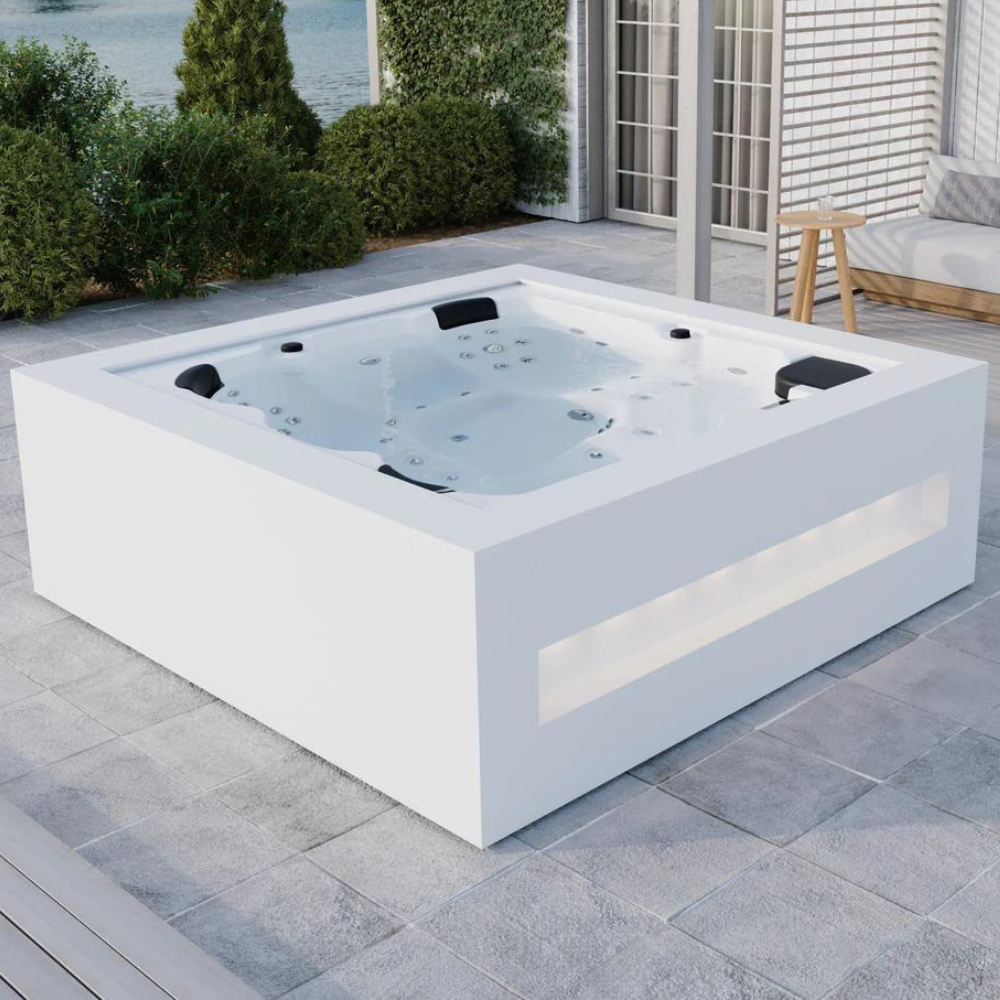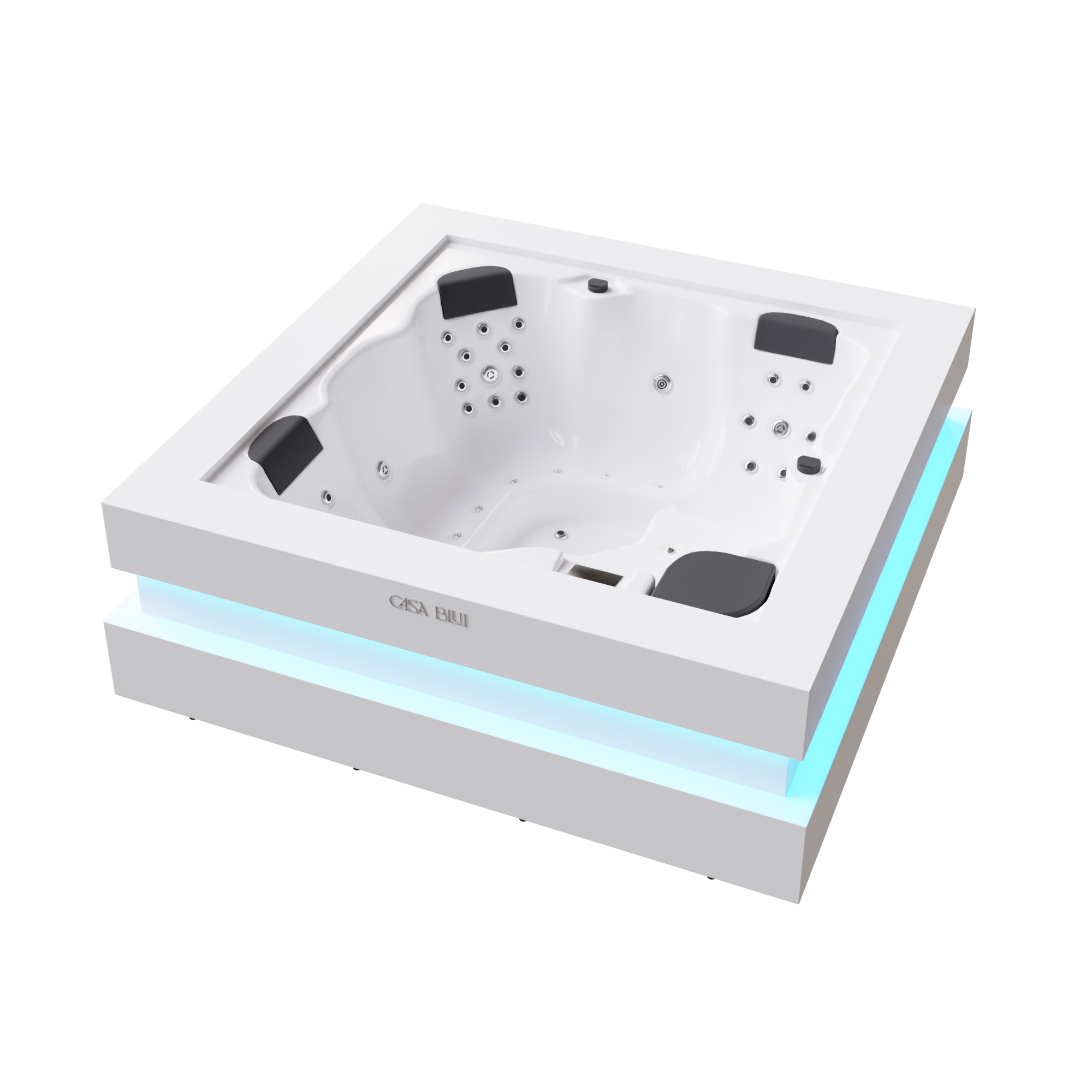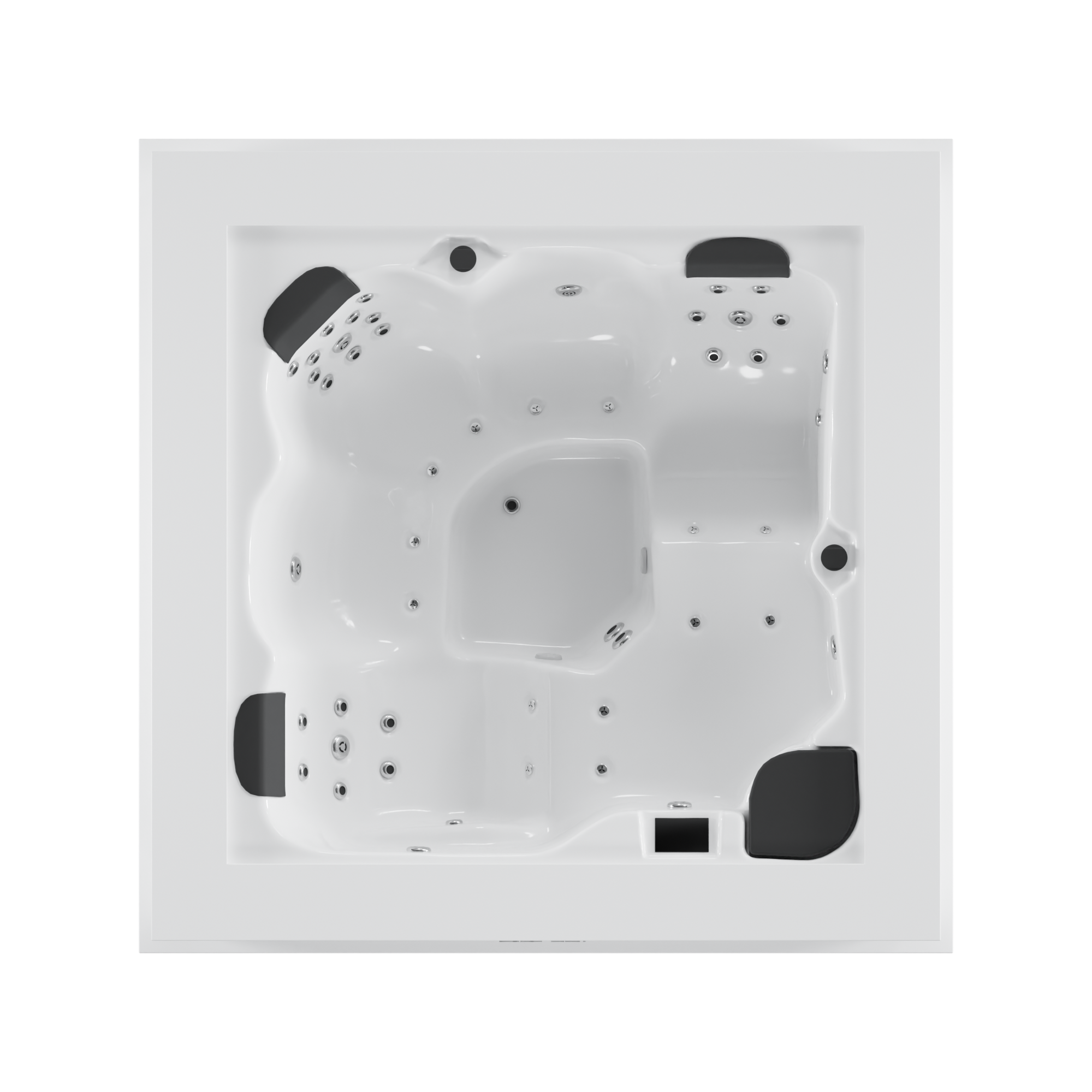Casa Blui Blog
What Is Hot Tub Therapy? How to Maximize the Benefits
By andrei newman

Ever wonder why people can't stop raving about hot tub therapy? It's so much more than just a relaxing soak. With our years of experience in the designer home spa industry, we've seen firsthand the incredible benefits of hot tub therapy. From easing muscle tension to improving sleep, the advantages are myriad. Let's dive in and explore the benefits together.
What Is Hot Tub Therapy?
Hot tub therapy, synonymous with hydrotherapy, harnesses the power of warm water immersion to unlock a range of health benefits. Typically conducted in water temperatures between 100°F and 104°F, this therapy promotes muscle relaxation, improves circulation, and reduces stress.
Modern hot tubs elevate this experience with advanced jet systems that provide targeted massages, enhancing the therapeutic effects. Whether you're dealing with chronic pain, stress, or sleep issues, hot tub therapy can offer a comprehensive solution for both your mental and physical well-being.
The Science Behind Hot Tub Therapy
Hot tub therapy combines three main components to provide a comprehensive wellness experience.
Heat therapy raises your body's core temperature, facilitating better blood circulation and replenishing tissue nutrients, which helps muscle recovery after a workout.
Hydrotherapy leverages the buoyancy of the water, reducing your body weight by up to 90% and alleviating pressure on your joints and muscles, allowing them to rest and recover.
Massage therapy uses built-in jets that deliver targeted pressure to specific muscle groups. These jets release endorphins, your body's natural painkillers, reducing stress and pain.
Health Benefits
Some of the positive effects of hot tub therapy include:
Improved circulation & pain relief
Warm water is a vasodilator, meaning it causes your blood vessels to expand, facilitating better blood flow. This enhanced circulation improves the delivery of oxygen and nutrients to your tissues, potentially reducing chronic pain symptoms. According to the Arthritis Foundation, soaking in warm water is a safe, effective therapy for those with arthritis, fibromyalgia, or low back pain. The organization says a warm soak can loosen stiff joints and relieve muscle aches.
Post-workout recovery
Hydrotherapy relaxes tense muscles, making a soak in your hot tub an ideal post-workout activity. A study on hydrotherapy as a recovery strategy had participants complete a spinning session and then relax for 10 minutes in water between 92- and 96-degrees Fahrenheit. The hydrotherapy helped the participants recover following their workouts, suggesting its use as a good recovery strategy post-exercise. Since warm water also improves muscle elasticity, hot tubs have benefits for athletes as well. You could try pre-soak sessions to reduce your risk of injury when you’re performing.
Joint relief
As you float in the water, the buoyancy effect decreases pressure on your aching joints, providing temporary pain relief. This can be particularly beneficial if you have a condition like arthritis. Hot tub therapy can enhance your mobility and overall comfort by reducing the gravitational pull on your body. Research on water's buoyancy effects has shown the gravitational pull on your body to be reduced by 50% when you're in waist-deep water, 75% when you're in chest-deep water, and 90% when you're in neck-deep water.
Stress & anxiety relief
Scientists have found hydrotherapy to be a scientifically evidence-based treatment for fatigue and anxiety, with the effects varying from individual to individual and dependent upon factors like water temperature. Although more studies are needed to explain precisely how hydrotherapy achieves this, it may very well be that the soothing combination of heat, water, and massage from the jets calms your nervous system, leading to reduced stress. Anecdotally, many people claim that their regular soaking sessions help to put them in a peaceful mental state.
Cardiovascular health
Researchers have linked the regular use of hot tubs to improved cardiovascular health. Again, this is thanks to warm water's role as a vasodilator, causing blood vessels to expand and blood pressure to lower.
In May 2020, the journal Heart published a health study that followed 30,000-plus people over 20 years in Japan. The researchers collected information about the people's bathing habits in water between 104°F and 107°F. After adjusting for diet, exercise, smoking habits, and other factors that affect a person's heart health, the researchers found that, compared to the participants who bathed fewer than two times per week, those who bathed nearly every single day had a 28% lower risk of cardiovascular disease and a 26% lower risk of stroke.
How to Maximize the Benefits of Hot Tub Therapy
To fully reap the benefits of hot tub therapy, it's essential to consider the duration, frequency, and complementary practices.
Start with 15-20-minute sessions and gradually increase to 30 minutes as your body acclimates. Regular usage—several times a week—ensures consistent benefits, but you should always listen to your body's responses.
Pairing hot tub therapy with cryotherapy or physical therapy or relaxation techniques like meditation can enhance its effects. A hot tub's calm environment is ideal for practicing mindfulness, which can amplify stress-relief benefits.
Potential Risks & Safety Considerations
While hot tub therapy offers numerous health benefits, it's essential to be aware of these potential risks, particularly for specific individuals:
Overheating & dehydration: Spending too much time in a hot tub can lead to dehydration and overheating. Symptoms may include headaches, dizziness, and nausea. Constantly monitor your time and ensure adequate hydration before, during, and after your soak.
Skin irritations: Improperly sanitized hot tubs can cause skin infections or rashes. It is crucial to maintain clean water and be cautious of any chemicals that might cause allergic reactions.
Special precautions: Individuals with heart disease, low blood pressure, or pregnancy should consult with a healthcare professional before using a hot tub. Monitoring the water temperature and limiting soak time are essential for safe use.
Best Hot Tub Features to Enhance Therapy
Modern hot tubs come with advanced features that elevate your recovery and relaxation experience. Billionaires use hot tubs with top-tier technology to optimize health benefits—here’s what to look for:
Jets & their placement: High-quality hot tubs feature customizable jets you can adjust for pressure and placement, allowing for targeted massage of specific muscle groups. This design maximizes the spa's therapeutic effects, relieving where you need it most.
Adjustable settings: The ability to control the temperature and jet pressure is crucial for personalizing your therapy sessions. These settings allow you to tailor the experience to your comfort and health needs, ensuring the best results.
Additional features: Many hot tubs include ambient lighting and built-in sound systems, which can further enhance your relaxation experience. These features can transform a simple soak into a multi-sensory therapy session, promoting mental tranquility alongside physical relief.
Frequently Asked Questions
What are the benefits of hot tub therapy?
Hot tub therapy, or hydrotherapy, is known for both its physical and mental health benefits. Regular usage can aid pain management, improve sleep quality, induce muscle relaxation, and enhance cardiovascular health. For mental wellness, the therapy can provide stress relief and boost mood.
How does the design of hot tubs enhance therapy?
Features such as jets, their placement, adjustable temperature and jet pressure settings, and additional features like lighting and built-in sound systems enhance the therapeutic experience. Ideal jet configuration facilitates targeted massage experiences.
Is hot tub customization necessary for hot tub therapy?
Customizing your hot tub experience isn't necessary for hot tub therapy, but it can increase its benefits. Consider your comfort, health conditions, and safety precautions while customizing your home spa to optimize your wellness benefits.
What are the factors to consider when choosing the right hot tub for therapy?
When choosing the suitable model, factors include the hot tub size, capacity, and jet configuration for targeted muscle relief.
Are there any potential risks or individuals who should avoid using hot tubs?
Yes, people with heart disease and pregnant women should avoid using hot tubs due to the potential elevation in body temperature. Those on medications that cause drowsiness and individuals prone to seizures should also exercise caution. Always ensure good hygiene to prevent hot tub rash and legionnaires' disease.










